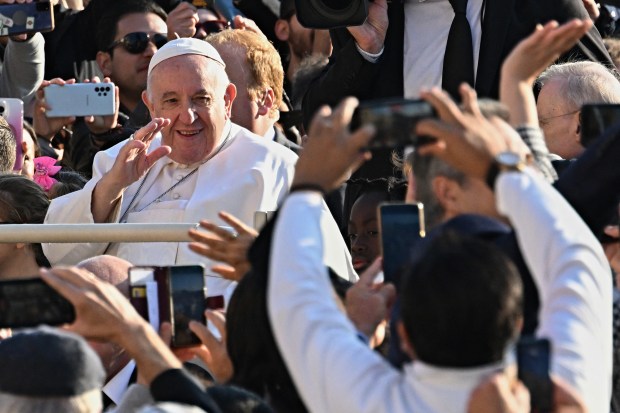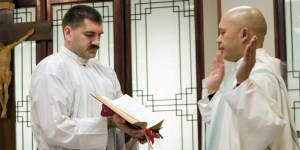Prayer, self-knowledge, and now desire. Pope Francis is on the third element, the third "ingredient," in order to successfully discern.
"Discernment is a form of searching," he said, "and searching always stems from something we lack but somehow know, that we intuit."
The Pope is drawing on a special emphasis of his Jesuit spirituality in dedicating the Wednesday audiences to the theme of discernment. This October 12, he considered this type of "knowledge" that is referred to by the term "desire."
Stars
Pope Francis explained how a sincere desire goes deep, and why is continues even when faced with difficulties and setbacks. He compared it to feeling thirst; if we don't find something to drink, the thirst doesn't go away. In fact it grows until we're almost obsessed with quenching our thirst.
"Obstacles and failures do not stifle the desire, no; on the contrary, they make it even more alive in us," he said.
These true desires, then, are not a "momentary craving or emotion." They move us to set limits and say no to other things.
He said: "Desire makes you strong, it makes you courageous, it makes you keep going forward, because you want to arrive at that: 'I desire that.'"
If you find yourself grumbling, beware, it is almost a sin, because it stops desire from growing.
How much do we want?
And a value is more easily achievable when it is attractive, he explained. "Being good is something attractive, we all want to be good, but do we have the wish to become good?"

Not enough desire
Pope Francis noted that a desire often "makes the difference between a successful, coherent and lasting project, and the thousands of wishes and good intentions with which, as they say, 'hell is paved with': 'Yes, I would like, I would like, I would like…' but you do nothing."
Then the Pope observed how our era, which seems to promote "maximum freedom of choice" actually "atrophies desire."
The Pope concluded by inviting us to hear Jesus ask the type of question that he asked so often in the Gospel, such as to the the blind man in Jericho: “What do you want me to do for you?” (Mk 10:51)



